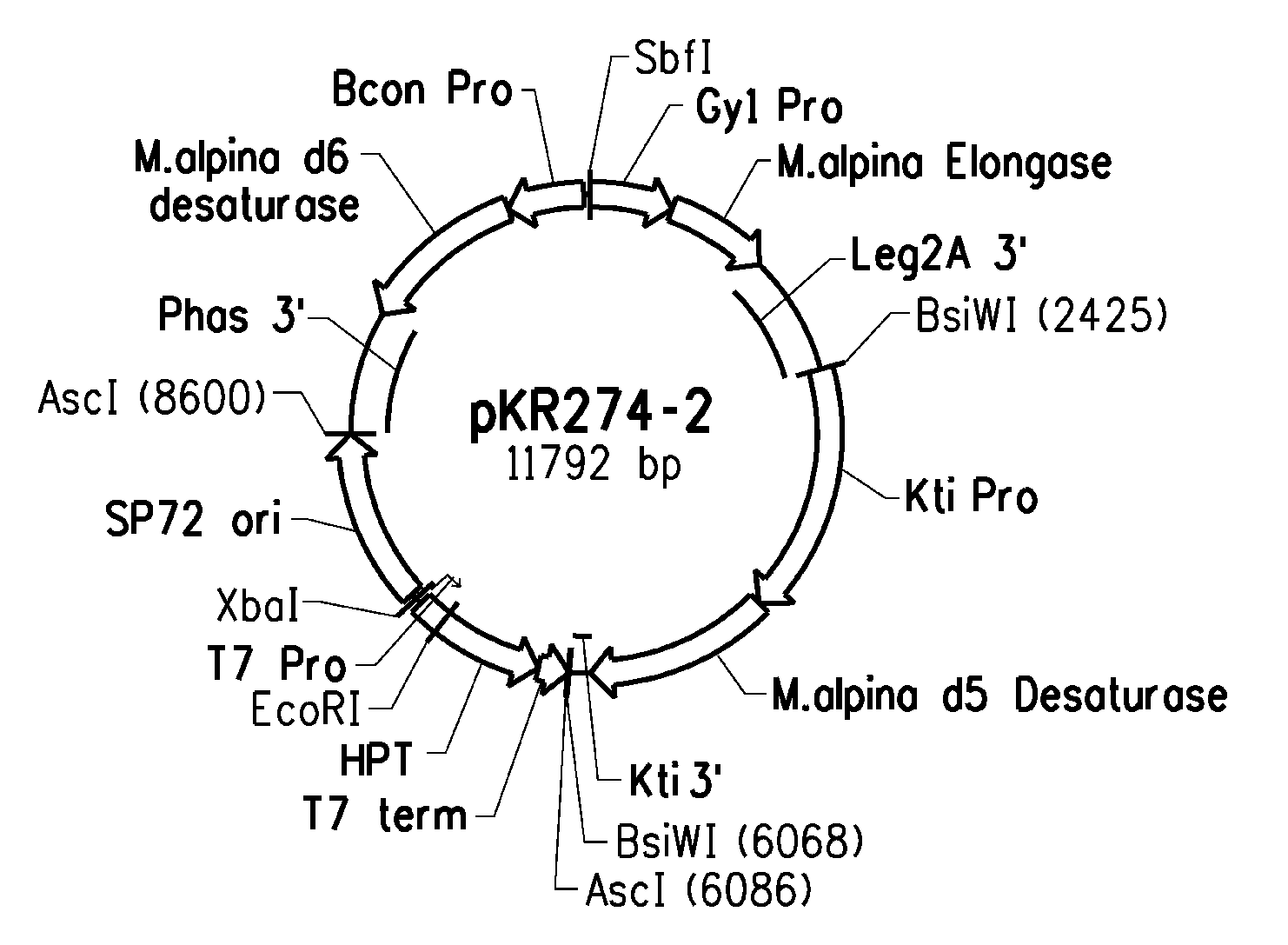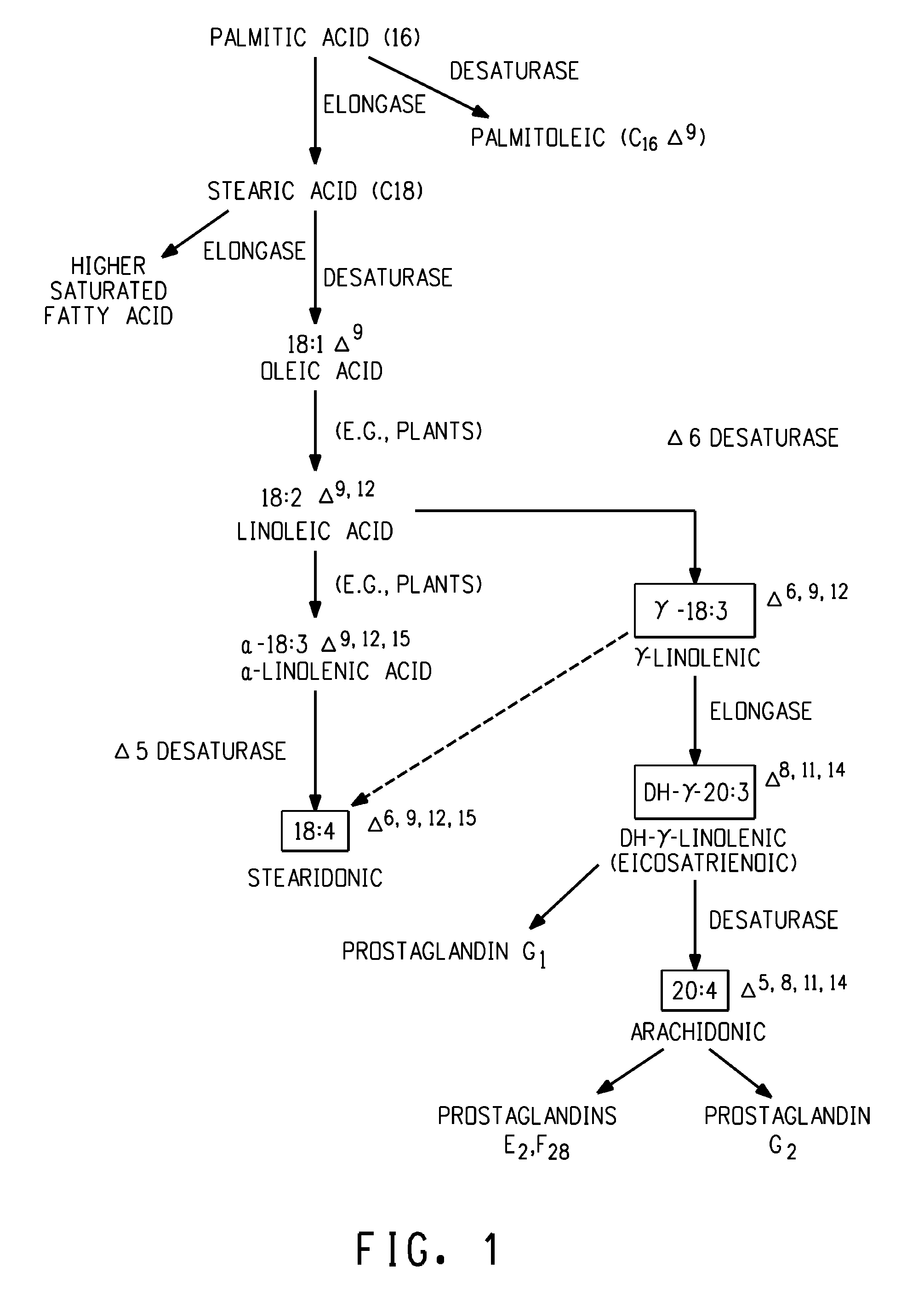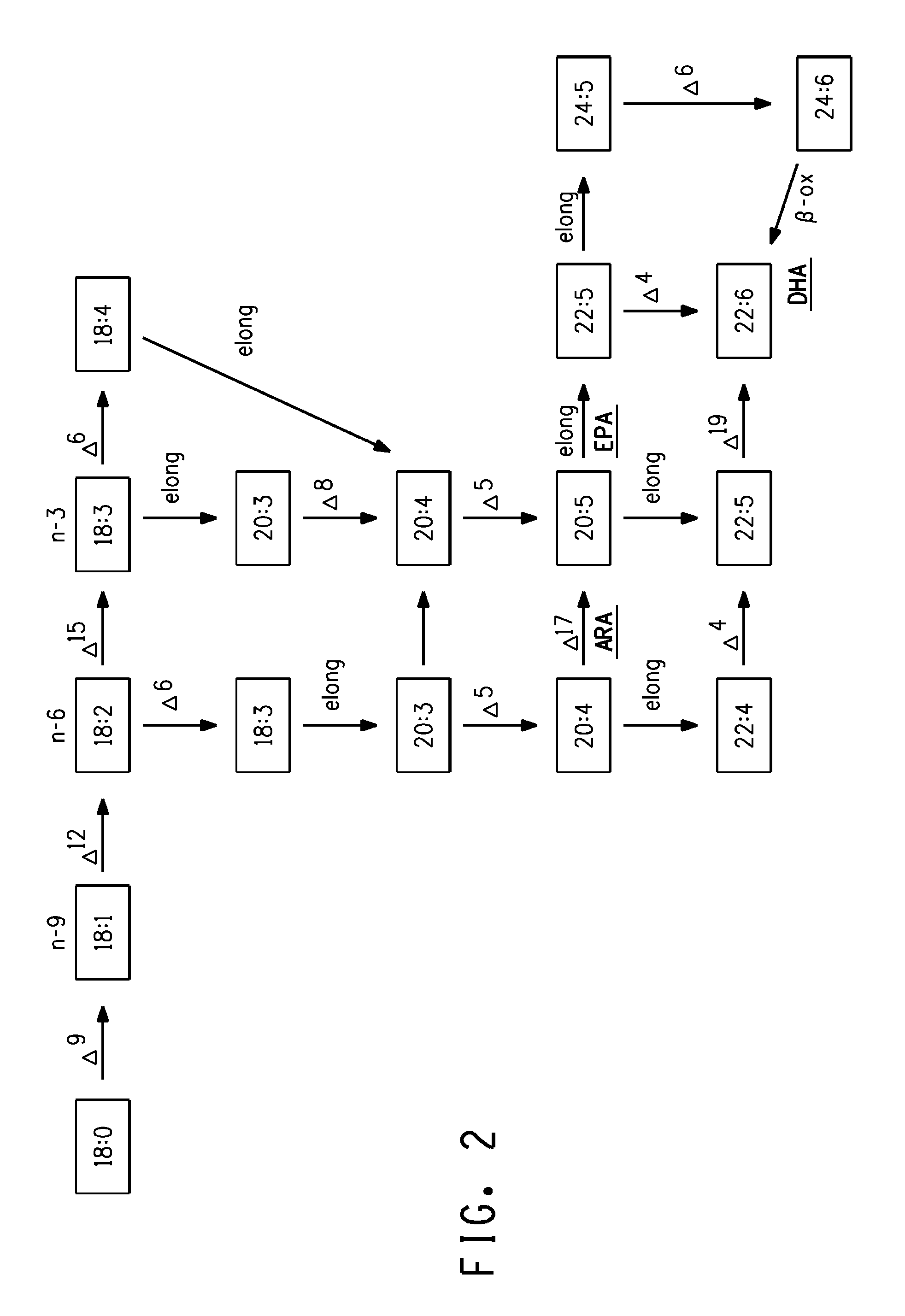Production of Very Long Chain Polyunsaturated Fatty Acids in Oil Seed Plants
a technology of polyunsaturated fatty acids and oil seed plants, applied in the field of biotechnology, can solve the problems that the human body cannot synthesize two long-chain polyunsaturated fatty acids, docosahexaenoic acid (dha), efficiently
- Summary
- Abstract
- Description
- Claims
- Application Information
AI Technical Summary
Problems solved by technology
Method used
Image
Examples
example 1
Isolation of Soybean Seed-Specific Promoters
[0267]The soybean annexin and BD30 promoters were isolated with the Universal GenomeWalker system (Clontech) according to its user manual (PT3042-1). To make soybean GenomeWalker libraries, samples of soybean genomic DNA were digested with DraI, EcoRV, PvuII and StuI separately for two hours. After DNA purification, the digested genomic DNAs were ligated to the GenomeWalker adaptors AP1 and AP2.
[0268]Two gene specific primers (GSP1 and GSP2) were designed for soybean annexin gene based on the 5′ coding sequences in annexin cDNA in DuPont EST database. The sequences of GSP1 and GSP2 are set forth in SEQ ID NOS:1 and 2.
GCCCCCCATCCTTTGAAAGCCTGTSEQ ID NO:1CGCGGATCCGAGAGCCTCAGCATCTTGAGCAGAASEQ ID NO:2
[0269]The AP1 and the GSP1 primers were used in the first round PCR using the conditions defined in the GenomeWalker system protocol. Cycle conditions were 94° C. for 4 minutes; 94° C. for 2 second and 72° C. for 3 minutes, 7 cycles; 94° C. for 2 s...
example 2
Vector Construction for Characterizing Strong Seed-specific Promoters
[0274]EPA can be produced at high levels in the seeds of important oil crops, such as soy, by strongly expressing each of the individual biosynthetic genes together, in a seed specific manner. To reduce the chance of co-suppression, each individual gene can be operably linked to a different, strong, seed-specific promoter. Because the biosynthetic pathway leading to EPA involves the concerted action of a large number of different genes, it was necessary to first identify and characterize many different promoters that could then be used to express each EPA biosynthetic gene. Promoters were identified and tested for their relative seed-specific strengths by linking them to the M. alpina delta-6 desaturase which, in these experiments, acted as a reporter gene. The M. alpina delta-6 desaturase can introduce a double bond between the C6 and C7 carbon atoms of linoleic acid (LA) and α-linolenic acid (ALA) to form γ-linol...
example 3
Cloning of Individual EPA Biosynthetic Pathway Genes for Expression In Somatic Soybean Embryos
[0286]Each of the EPA biosynthetic genes was tested individually in order to assess their activities in somatic soybean embryos before combining for large-scale production transformation into soybean. Each gene was cloned into an appropriate expression cassette as described below. For the M. alpina delta-5 desaturase and elongase, both genes were combined together on one plasmid. The genes and promoters used, and the corresponding vector names are listed in Table 3.
TABLE 3EPA BIOSYNTHETIC GENES EXPRESSED IN SOYBEANSOMATIC EMBRYOSSourceSequenceSequenceActivityOrganism(DNA)(Protein)VectorDelta-6M. alpinaSEQ ID NO: 33SEQ ID NO: 34pKR162desaturaseDelta-6S. diclinaSEQ ID NO: 35SEQ ID NO: 36pKS208desaturaseDelta-5S. diclinaSEQ ID NO: 37SEQ ID NO: 38pKR305desaturaseelongaseT. aureumSEQ ID NO: 39SEQ ID NO: 40pKS209Delta-17S. diclinaSEQ ID NO: 41SEQ ID NO: 42pKS203desaturaseelongaseM. alpinaSEQ ID N...
PUM
| Property | Measurement | Unit |
|---|---|---|
| Fraction | aaaaa | aaaaa |
| Fraction | aaaaa | aaaaa |
| Fraction | aaaaa | aaaaa |
Abstract
Description
Claims
Application Information
 Login to View More
Login to View More - R&D
- Intellectual Property
- Life Sciences
- Materials
- Tech Scout
- Unparalleled Data Quality
- Higher Quality Content
- 60% Fewer Hallucinations
Browse by: Latest US Patents, China's latest patents, Technical Efficacy Thesaurus, Application Domain, Technology Topic, Popular Technical Reports.
© 2025 PatSnap. All rights reserved.Legal|Privacy policy|Modern Slavery Act Transparency Statement|Sitemap|About US| Contact US: help@patsnap.com



